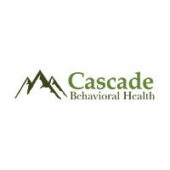
Trauma and PTSD therapists in Graham, Washington WA

Rebecca Gallagher
Therapist
In my work with individuals, couples and families, I am passionate about helping my clients explore what is holding them back from living their best lives. I am an active and supportive listener and will help you identify and meet your own goals for health and happiness.
Arthur (Archie) Levine
Licensed Professional Counselor, MA, LMHC
Experiencing traumas can change the brain in profound ways, affecting the way a person perceives the world & reacts to triggering situations. The brain stores traumatic memories in a way that the person perceives the memory as being still in process. Through the use of Thought Pattern Management, Hypnotherapy, & Hypnotherapy, traumatic memories can be processed in a way that enables the brain to change the way it stores these memories, allowing the person to recognized that the event is in the past & that they are now safe. The person is then free to heal & grow, leaving the pain somewhere in the past.
Reclaim Counseling, PLLC
Licensed Professional Counselor, LMHC
Trauma is any time in your life where your emotions overwhelmed you past the point that you had the resources to cope with in the moment. Whether it was because you were alone without a trusting adult to guide you, too young to understand what was happening, or an event or person was terrifying.
Cascade Behavioral Health
Treatment Center
Cascade Behavioral Health offers a variety of trauma and PTSD treatment services, tailored to an individual's needs. Our evidence-based programs are designed to help individuals process traumatic events and learn skills to manage symptoms associated with PTSD. Our treatment centers work closely with individuals to create a personalized treatment plan that may include cognitive behavior therapy, mindfulness, trauma-focused therapy, and EMDR. Our services are designed to help individuals gain insight, reduce stress and anxiety, and develop coping strategies to help manage the symptoms of PTSD.
Utah Center for Evidence Based Treatment
Psychologist, Ph.D.
The UCEBT Trauma, Stress, and Resilience (TSR) Program provides expert care in the treatment of stress and trauma-related issues.
Most people at some point in their lives will experience a trauma or other difficult event, such as a loss of a loved one, medical illness, financial stressors, work burnout, divorce, etc. Depending upon our unique past and current circumstances, these events impact each of us differently. In the aftermath, some may develop symptoms of posttraumatic stress disorder (PTSD), depression, grief, or experience other life challenges. In spite of our best efforts, sometimes the problems persist and common coping strategies (like isolation, working long hours, alcohol, etc.) can create new problems.
Fortunately, there are now several proven therapies to get people unstuck and tap into our natural human ability to heal after a painful life event. Our center is committed to offering the most effective treatment options for both supporting you during a difficult period as well as long-term skills to foster resiliency for the future.
There are several gold standard evidence-based treatments right now for trauma. Our clinicians in this program have formal training and expertise in:
Acceptance and Commitment Therapy
Cognitive Processing Therapy -- CPT is a therapy that focuses on helping individuals identify and challenge unhelpful thoughts and beliefs related to their traumatic experiences. It aims to promote cognitive restructuring and reduce distressing symptoms. CPT has been recommended as treatment for post-traumatic stress disorder (PTSD) by organizations such as the American Psychological Association (APA) and the U.S. Department of Veterans Affairs (VA/DoD). This episode of This American Life does a great job capturing what to expect in CPT and illustrating its effectiveness: https://www.thisamericanlife.org/682/ten-sessions
Cognitive Behavior Therapy for Insomnia
Trauma-focused Cognitive Behavioral Therapy Interventions -- TF-CBT is a structured therapy that focuses on helping individuals process and cope with traumatic experiences. It combines cognitive-behavioral techniques with trauma-specific interventions. TF-CBT has also been widely recommended as a treatment PTSD by the APA and the VA/DoD.
Eye Movement Desensitization and Reprocessing Therapy (EMDR) -- This modality uses eye movements or other forms of bilateral stimulation to help individuals process traumatic memories and reduce distressing symptoms. In contrast to the "top-down approaches" listed above, this is a "bottom-up approach," meaning that it starts with addressing the physiological and sensory aspects of an individual's experience before moving on to cognitive or higher-order processes. This approach recognizes that trauma can have a profound impact on the nervous system and bodily sensations. The goal is to help individuals process and release traumatic experiences by accessing the body's wisdom and resources. By directly targeting the limbic system (the feeling center of the brain) and sensory receptors throughout the body, a bottom-up approach aims to undo trauma's imprint on the body and promote healing. It acknowledges that trauma responses are not solely cognitive but also involve physiological and sensory aspects.
Prolonged Exposure -- PE is a type of therapy that involves gradually and systematically exposing individuals to trauma-related memories, situations, or objects that they have been avoiding. The goal is to help individuals confront and process their traumatic experiences, reducing avoidance and fear. PE has also been recommended as a treatment for PTSD by the APA and the VA/DoD.
The Gottman Method for Couples Therapy
Written Exposure Therapy (WET) -- Sometimes, flashbacks can be so debilitating and spike our SUDS so suddenly, that all of the above-mentioned modalities end up doing more harm than good. This modality is a brief, trauma-focused talk therapy that involves a series of [typically] five 30- to 45- minute sessions. The therapy involves writing about the thoughts and feelings experienced during the traumatic event, which allows individuals to engage with the memory and potentially overcome shame or embarrassment associated with the experience. The goal is to help individuals find new ways to think about their traumatic experiences and gain relief from PTSD symptoms. There is little 'down time' between sessions, meaning an individual could schedule all five sessions back-to-back and effectively stop flashbacks or other reexperiencing symptoms within a week, which no other modality can match in terms of efficiency.





